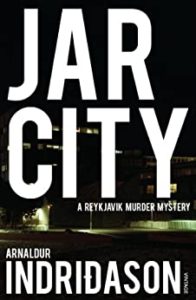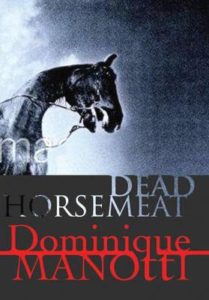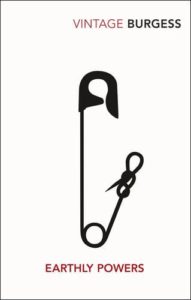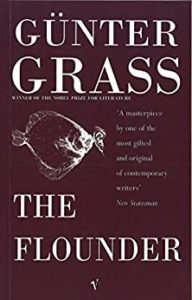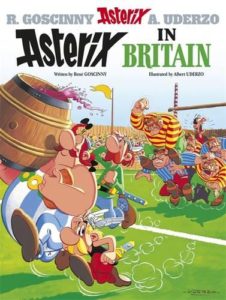Decades: Compiling the Ultimate Library with Trevor Wood
Every Friday I welcome a guest to Grab This Book and I ask them to help me add new books to my Decades Library. It’s a project I started back in January 2021 and over the last 20 months my Library has grown beyond my wildest dreams.
If you haven’t encountred by Decades Library in the past then let me quickly explain what’s happening. I imagined a brand new library, a vast space filled with empy book shelves waiting for the books to be added. But which books? If you had to curate a brand new library and only wanted the very best books to be available for readers which books would you choose?
I knew this was not a task I could complete on my own so I invite guests to join me each week and I ask them to nominate five books which they believe should be added to my libary shelves. But why is it a “Decades” Library? Well there are two rules which govern the selections my guests can make:
1 – Pick ANY Five Books
2 – You Can Only Select One Book Per Decade From Five Consecutive Decades.
This week I am delighted to welcome CWA Dagger winner Trevor Wood to the Library. Trevor is the third member of the Northern Crime Writing Syndicate who has made their Decades selections (and a fourth syndicate member will soon make an appearance).
But enough explanations, you’re here for Trevor’s choices so it’s time to hand over control of the Library to Mr Wood…
 Trevor Wood has lived in Newcastle for 30 years and considers himself an adopted Geordie, though he still can’t speak the language. He’s a successful playwright who has also worked as a journalist and spin-doctor for the City Council. Prior to that he served in the Royal Navy for 16 years. Trevor holds an MA in Creative Writing (Crime Fiction) from UEA.
Trevor Wood has lived in Newcastle for 30 years and considers himself an adopted Geordie, though he still can’t speak the language. He’s a successful playwright who has also worked as a journalist and spin-doctor for the City Council. Prior to that he served in the Royal Navy for 16 years. Trevor holds an MA in Creative Writing (Crime Fiction) from UEA.
His first novel The Man on the Street, which is set in his home city and features the homeless protagonist, Jimmy Mullen, won the Crime Writers’ Association’s John Creasey New Blood Dagger for best debut and the Crimefest Specsavers Debut Novel of the Year. It was also shortlisted for the Theakston’s Old Peculier Crime Novel of the Year and has been optioned for television by World Productions, the makers of Line of Duty. It was followed by the highly-acclaimed sequel, One Way Street and the final book in the trilogy, Dead End Street was released in January. His next book, You Can Run, a standalone thriller set in rural Northumberland is out in March 2023.
Trevor is one of the founder members of the Northern Crime Syndicate and is a volunteer chef at the People’s Kitchen in Newcastle, a charity that provides hot meals for around 250 people every day.
@TrevorWoodWrite
DECADES
Whenever I’m making any kind of list about books that inspired me to want to write I always start with A Clockwork Orange and build around that so the 1960s had to be on my list. I couldn’t leave Dennis Lehane off either so my fifty-year period was almost inevitable. It’s a lot darker than I would have anticipated but I used to be a comedy writer so when I decided to turn myself into a ‘gritty’ crime writer I devoured a ton of dark stuff, especially James Ellroy and David Peace and have clearly developed a taste for it. Though I first read A Clockwork Orange when I was about 14 so maybe it’s always been there!
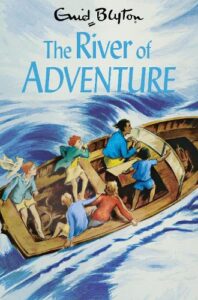 The River of Adventure Enid Blyton 1955
The River of Adventure Enid Blyton 1955
I know she had her faults but Enid Blyton was my gateway drug into crime fiction. The Secret Seven and The Famous Five were great but my favourites were always the Adventure gang, Jack, Lucy-Ann, Philip, Dinah and Kiki. How could you not love a gang of crime-solving kids with a pet parrot?
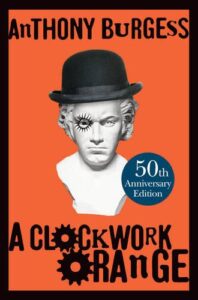 A Clockwork Orange Anthony Burgess 1962
A Clockwork Orange Anthony Burgess 1962
The first ‘grown-up’ book that really spoke to me. Alex was the first cool anti-hero I’d ever come across and the made-up Nadsat language was like a secret code that kept the grown-ups at a distance, a lot of kids at my school started using it to wind up the teachers. It’s a great shame that the terrible Kubrick film concentrated so much on the violence and ultimately led to Burgess dismissing his own work as the book is about much more than that. Dark, challenging and, for me, at times, profound.
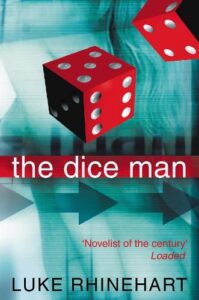 The Dice Man 1971 Luke Rhinehart
The Dice Man 1971 Luke Rhinehart
Another pitch black, cool book, dangerous almost. The bored protagonist, Luke, starts to make all his decisions on the throw of a dice which leads him into some very nihilistic territory. Many thought it was autobiographical when it first came out, probably because the author used a pseudonym and legend has it that a lot of readers copied Luke’s approach in real life.
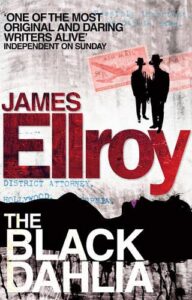 The Black Dahlia 1987 James Ellroy
The Black Dahlia 1987 James Ellroy
No one else does it quite like Ellroy. The Black Dahlia was the first book in an outstanding quartet which also featured, The Big Nowhere, LA Confidential and White Jazz. It portrayed a post-war Los Angeles peppered with violence, corruption, and voyeurism and was described by one critic as ‘the most ambitious and accomplished crime fiction in the history of American literature.’ They were spot on.
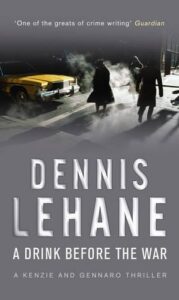 A Drink Before The War 1990 Dennis Lehane
A Drink Before The War 1990 Dennis Lehane
The first in my favourite crime series, introducing Patrick Kenzie and Angie Gennaro, a beautifully realised pair of private detectives whose on-off relationship adds an extra dimension to some brilliant thrillers, including Gone Baby Gone which was made into an equally wonderful film by Ben Affleck. Lehane is a master of his craft – he was also one of the team of writers on the brilliant TV series, The Wire.
Decades always brings gems but sometimes one of my guests brings one of my favouite books to the Decades Library. Trevor has done just that today. Although I have likely read The River of Adventure a dozen times or more I have so much more love for the Kenzie and Gennaro books. A Drink Before the War wasn’t the first story I read in this brilliant series by Dennis Lehane but I remember when I did finally read it – it blew me away.
My thanks to Trevor for five storming selections – all to be added to the Decades Library.
DECADES WILL RETURN

